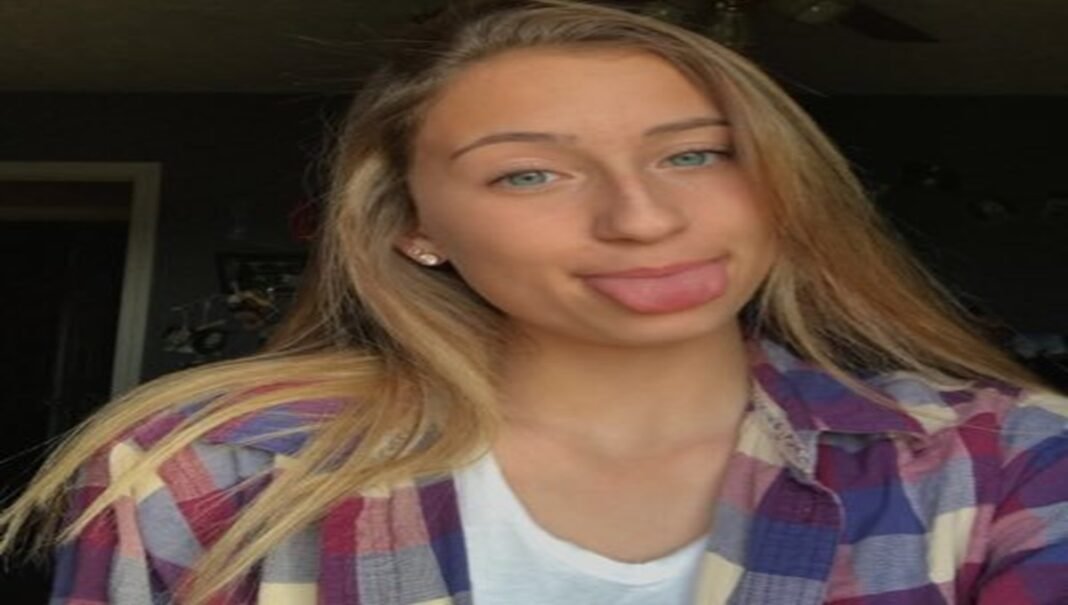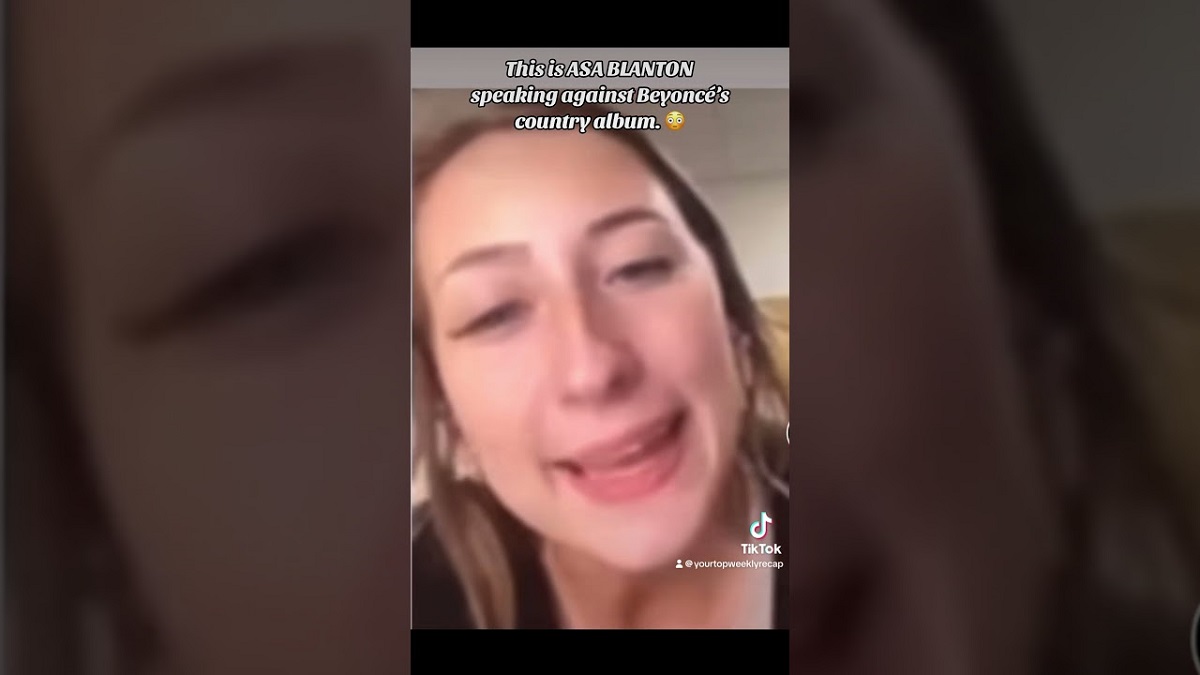Indiana State Student Asa Blanton's Racist Comments On Beyonc Spark Outrage
Is it possible for a single, poorly-conceived video to ignite a firestorm of controversy, exposing deeply rooted societal biases? The recent saga surrounding an Indiana State University student, Asa Blanton, and her inflammatory remarks about Beyoncs foray into country music, emphatically demonstrates the potent impact of such actions, highlighting the persistent issues of race and cultural appropriation.
Over the weekend, the digital landscape was set ablaze by a video originating from Indiana State University in Terre Haute. The video, posted on platforms like TikTok and Yik Yak, featured a student identified as Asa Blanton, making profoundly offensive and racially charged comments. Blanton's remarks were directed at the Black community and their connection to country music, particularly in response to Beyoncs newest album, "Act II: Cowboy Carter." The content quickly gained traction, becoming a focal point of widespread condemnation and prompting a university response.
The crux of the issue lies in Blanton's assertion that Black people are inherently not "country," a statement that resonated with harmful stereotypes and historical context. Her comments were perceived as racially insensitive, and her remarks were quickly amplified across social media, drawing significant attention and criticism to Indiana State University.
- Larissa Liveir Guitarists Bio Age Height More
- Valerica Steele Latest News Wiki Updates What You Need To Know
The core of the controversy revolves around a TikTok video in which Blanton, a nursing student at Indiana State University, expressed her views on Beyonc's country album, "Cowboy Carter." In the video, she made a statement that can be interpreted as a denial of Black peoples connection to country music, which was perceived as racially insensitive and sparked immediate backlash. The clips reach was amplified when reshared by other users, like tiktoker tizzyent, further extending the reach of the controversy.
The reaction was swift and critical, with many social media users calling out Blantons remarks as racist and ignorant. Beyond individual users, the incident was also met with formal responses from organizations such as the American Nurses Association and the Indiana State Nurses Association. These groups condemned Blantons comments and demanded that Indiana State University and its School of Nursing take appropriate action.
Following the viral spread of the video, Indiana State University released a statement, which was, in the eyes of many, deemed insufficient. The universitys response was perceived as "weak," a phrase used by many observers to express their disappointment at the lack of robust condemnation of Blantons remarks.
- Amy Baier Bret Baier Inside Their Story Family Life
- Valentina Rodriguez Bio News More Unveiling The Rising Star
The universitys response, or lack thereof, sparked further outrage. Many felt that a stronger, more explicit condemnation of the views expressed by the student was necessary. The incident highlighted the complexities of addressing issues of race and discrimination within academic settings, and the need for universities to take decisive action in the face of such incidents.
The content of the video, and the reaction it generated, serves as a powerful reminder of the deep-seated prejudices and biases that still exist within society. While freedom of speech is a fundamental right, it does not shield individuals from the consequences of expressing views that are offensive, discriminatory, or harmful.
The controversy generated by Blanton's comments is a complex issue, raising questions about cultural appropriation, the historical context of country music, and the role of universities in fostering inclusivity and combating discrimination. Blanton's statements seemed to deny a connection between Black people and country music, which ignores the historical contributions of Black musicians to the genre. This perspective echoes the painful history of excluding Black people from cultural spaces, which has been a recurring theme in American history.
The situation escalated as media outlets identified Asa Blanton as the individual at the center of the controversy. The focus then shifted to the potential repercussions for Blanton's future as a nursing student at Indiana State University. Many speculated that she might face disciplinary action, including possible expulsion from the nursing program. The question of how the university would handle the situation became a significant point of discussion among both students and external observers.
Blanton herself seemingly addressed the situation. The social media platforms have included alleged phone calls, where she claimed the story was "getting twisted up," and indicated she would not provide further commentary without legal counsel.
The incident led to debates about the historical roots of country music and the contributions of Black musicians. Historically, Black musicians have played a significant role in the development of country music. The contributions of artists like Charley Pride and others have proven that country music isnt and never was exclusive.
The widespread circulation of the video exposed the racial biases and lack of understanding regarding cultural heritage that are prevalent in some segments of society. The reaction was a testament to the impact of social media, and the importance of responsible online behavior.
The American Nurses Association and the Indiana State Nurses Association condemned the incident, calling for action from ISU and the School of Nursing. The incident became a case study on how an individual's actions on social media could trigger a wave of controversy that extends into a university environment. The incident underscores the intersection of race, culture, and the evolution of music.
The event also prompted an examination of the universitys handling of the situation. Many believed that the university should take more decisive action and make a clear and unequivocal statement condemning the views of the student.
The incident involving Asa Blanton is a microcosm of the larger conversation surrounding race, cultural appropriation, and free speech. The impact extends far beyond the individual involved, highlighting broader societal issues that still need to be addressed.
The incident underscores the importance of being aware of the consequences of online behavior. The situation is a reminder of the role universities play in fostering a safe and inclusive environment for students. The comments generated significant reactions and prompted Indiana State University to respond to the widespread criticism.
The fallout from the video is a clear demonstration of the power of social media and the rapid way in which such content can circulate, generating both support and widespread outrage. The incident sparked discussion about the responsibilities of individuals regarding the statements they make online.
The controversy has become a subject of discussion. The rapid spread of the video and the intensity of the reactions reflect the sensitivity of the topic, and the heightened vigilance with which such issues are now viewed in the digital age.
The ASA Blanton incident serves as a stark reminder of the impact of social media and the need for ongoing conversations about race, culture, and inclusivity. It's a call for both individuals and institutions to be mindful of the impact their words and actions have.
| Category | Details |
|---|---|
| Name | Asa Blanton |
| Age (Estimated) | Approximately 19-20 years old (as of 2024/2025) |
| Education | Nursing student at Indiana State University |
| Residence | Indiana, United States |
| Controversy | Made racist remarks about Black people and their connection to country music on TikTok |
| Social Media | Active on TikTok (where the controversial video originated) and possibly other platforms |
| Incident Context | Comments related to Beyonc's country album "Act II: Cowboy Carter" |
| University Response | Indiana State University released a statement, which was widely criticized as weak |
| Professional associations' reaction | The American Nurses Association and Indiana State Nurses Association condemned the incident. |
Reference: Indiana State University Official Website
Article Recommendations
- Jennifer Cheyne Jane Lynch Their Love Story Life Together
- Discover Laura Sommaruga Your Guide To The Girl Next Door



Detail Author:
- Name : Trycia Leuschke
- Username : arne.heidenreich
- Email : tabshire@corkery.com
- Birthdate : 1999-07-27
- Address : 8652 Jarod Loop Moniquefurt, UT 55489
- Phone : (480) 866-3847
- Company : Johnson Inc
- Job : Transportation Worker
- Bio : Harum vel velit consequatur et voluptatem soluta. Labore qui fuga excepturi adipisci quas eius adipisci. Ex saepe id officiis quo.
Socials
linkedin:
- url : https://linkedin.com/in/jamiejohnston
- username : jamiejohnston
- bio : Deleniti omnis et cupiditate.
- followers : 6274
- following : 615
instagram:
- url : https://instagram.com/johnston2015
- username : johnston2015
- bio : Fugit nobis deleniti sed dolore. Natus qui recusandae vel tempore optio.
- followers : 4770
- following : 2244